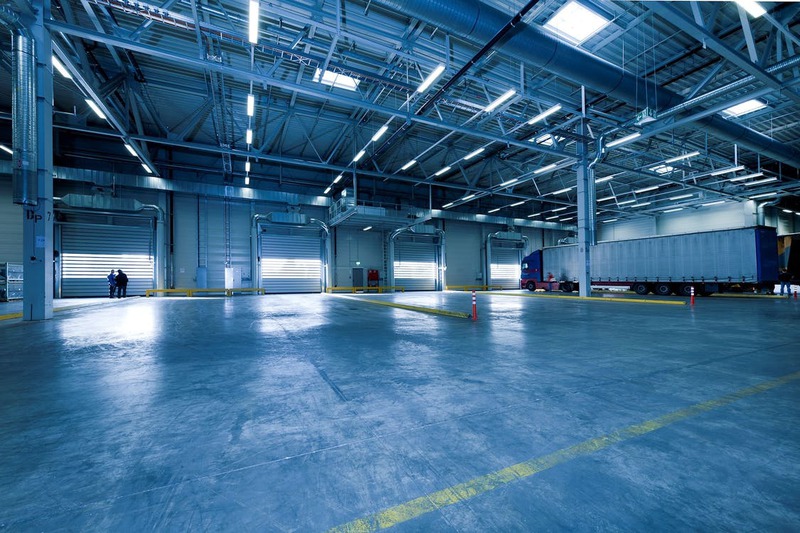When we talk about waste management, the conversation often revolves around sustainability and environmental impact. However, an equally important aspect is the economic side of things—specifically, how businesses can save money by effectively managing their waste. One of the unsung heroes in the world of waste management is the humble commercial compactor. Now, you might be wondering, how exactly does a piece of machinery help in cutting costs? Stick with us, and we’ll walk you through the terrific benefits of using commercial compactors and how they can lead to significant savings in waste management expenses.
The Mechanics behind Commercial Compactors
Before we delve into the cost-saving aspects, let’s get to know what commercial compactors are and how they operate. In simple terms, a commercial compactor is a machine designed to reduce the size of waste materials. They work by employing a metal ram to crush, flatten, and compress various kinds of waste, from cardboard and plastics to mixed refuse. This process of compaction minimizes the volume of the waste, leading to several key cost-cutting advantages.
Maximizing Dumpster Space and Minimizing Pickups
One of the first benefits of using a compactor is optimizing the space in your dumpsters. By compressing waste, the amount of room needed is significantly reduced. This space efficiency means that businesses can get away with fewer dumpsters on-site or need their dumpsters serviced less frequently, which directly translates to savings. Think about a roll off dumpster rental. If your waste isn’t compacted, you might need several of these rentals per week, but with a compactor, you could cut this down to a single weekly rental. It’s a straight-up game-changer for the books.
Improved Operational Efficiencies
With the use of a compactor, we’re not just talking about saving physical space. There’s also a noticeable improvement in the efficiency of waste management operations. Less time spent by your staff dealing with waste means more time they can devote to other crucial tasks in your business. Moreover, fewer waste pickups mean fewer interruptions to your day-to-day operations—allowing everything to run a bit more smoothly.
The Role of Large Commercial Trash Compactors in Logistics
Logistics and transportation costs can be a massive chunk of waste management expenses. By using a large commercial trash compactor, the volume of waste is reduced so much that fewer hauling trips are needed—significantly cutting down on transportation costs. The math is relatively straightforward here: less volume equals less hauling, which equals less money spent. It’s a ripple effect that can lead to substantial savings in the long term.
Environmental Benefits that Equate to Economic Savings
Reduced Carbon Footprint
Businesses today are more conscious than ever about their environmental impact, not just for the sake of the planet but because consumers are watching closely. By reducing the frequency of waste pickups, you’re directly contributing to lowering the carbon emissions associated with transportation. What’s more, customers are likely to support businesses that demonstrate environmental responsibility, often leading to an increase in business and, by extension, profits.
Financial Incentives for Being Green
Many local governments and organizations offer incentives or rebates to businesses that take steps to reduce their environmental impact. The use of compactors falls right into this category. By minimizing waste volume and thus the frequency of waste removal, you might just qualify for these financial perks, adding another layer to your savings.
Savings on Waste Disposal Fees and Penalties
For every business, waste disposal comes with its set of fees and sometimes even penalties for non-compliance with local regulations. By reducing the volume of waste through compaction, you’re lowering the number of times waste needs to be collected and processed. Fewer collections mean fewer fees, simple as that. In areas where waste disposal fees are calculated based on volume, the savings are even more pronounced.
Reduced Risk of Overflow and Contamination
Overflowing dumpsters are not just an eyesore; they can lead to environmental contamination and hefty fines. Compactors help keep waste contained and reduce the chance of overflows, keeping you clear of potential penalties and additional costs associated with spill cleanup.
Long-Term Cost Benefits
Durability and Maintenance Costs
Compactors are built to last. Yes, there’s an upfront investment, but these machines are designed for durability and long-term use. With proper maintenance, they can serve your waste management needs for years, which means you spread the initial cost over a longer period. In contrast, without a compactor, the continuous costs of waste management services add up significantly over time.
Enhancing Workplace Safety
One aspect that shouldn’t be overlooked is the safety of your workplace. Overfilled dumpsters and poor waste management can lead to increased risks of accidents and associated liabilities. By investing in a compactor, waste is managed more efficiently, which helps to create a safer work environment and potentially reduce the costs associated with workplace accidents and insurance claims.
How to Choose the Right Compactor for Your Business
Selecting the appropriate compactor for your business hinges on a few key considerations. Think about the type and volume of waste your business generates, the available space for the compactor, and your budget. It’s essential to engage with knowledgeable vendors who can provide you with guidance on the compactor that will best suit your needs and deliver the most significant cost savings.
-
Assess the types of waste your business produces.
-
Consider the amount of waste you generate daily or weekly.
-
Measure the available space to accommodate a compactor.
-
Review your budget and consider the potential return on investment.
-
Speak with waste management professionals for tailored advice.
Final Thoughts
Commercial compactors are vital for efficient waste management, offering both environmental and economic benefits. They help maintain cleaner workspaces, reduce the frequency of dumpster pickups, and lower disposal fees, potentially avoiding penalties. Using compactors can result in cost savings and qualify businesses for rebates, underscoring their role in promoting sustainability. Overall, compactors are an effective tool for businesses aiming to decrease waste management expenses while supporting eco-friendly practices.

